In 2024, communities in Afghanistan continued to face a dire situation marked by persistent economic challenges, natural disasters and the consequences of decades of armed conflict. International sanctions and reduced foreign aid created further challenges, contributing to a grim situation in a country where millions of people are grappling with poverty, food insecurity and difficulties in accessing essential services like health care.
“The plight of vulnerable groups, including women, children and people with disabilities, is particularly concerning. This alarming situation requires sustained international attention and long-term support to ensure that essential assistance reaches those in need.”
– Katharina Ritz, International Committee of the Red Cross (ICRC) Head of delegation in Afghanistan.
This selection of pictures captures the resilience and strength of the people of Afghanistan in the face of unrelenting challenges. Through a series of images and stories, we highlight the immense humanitarian needs faced across the country and the efforts of our teams to provide essential aid, support services and hope to communities.
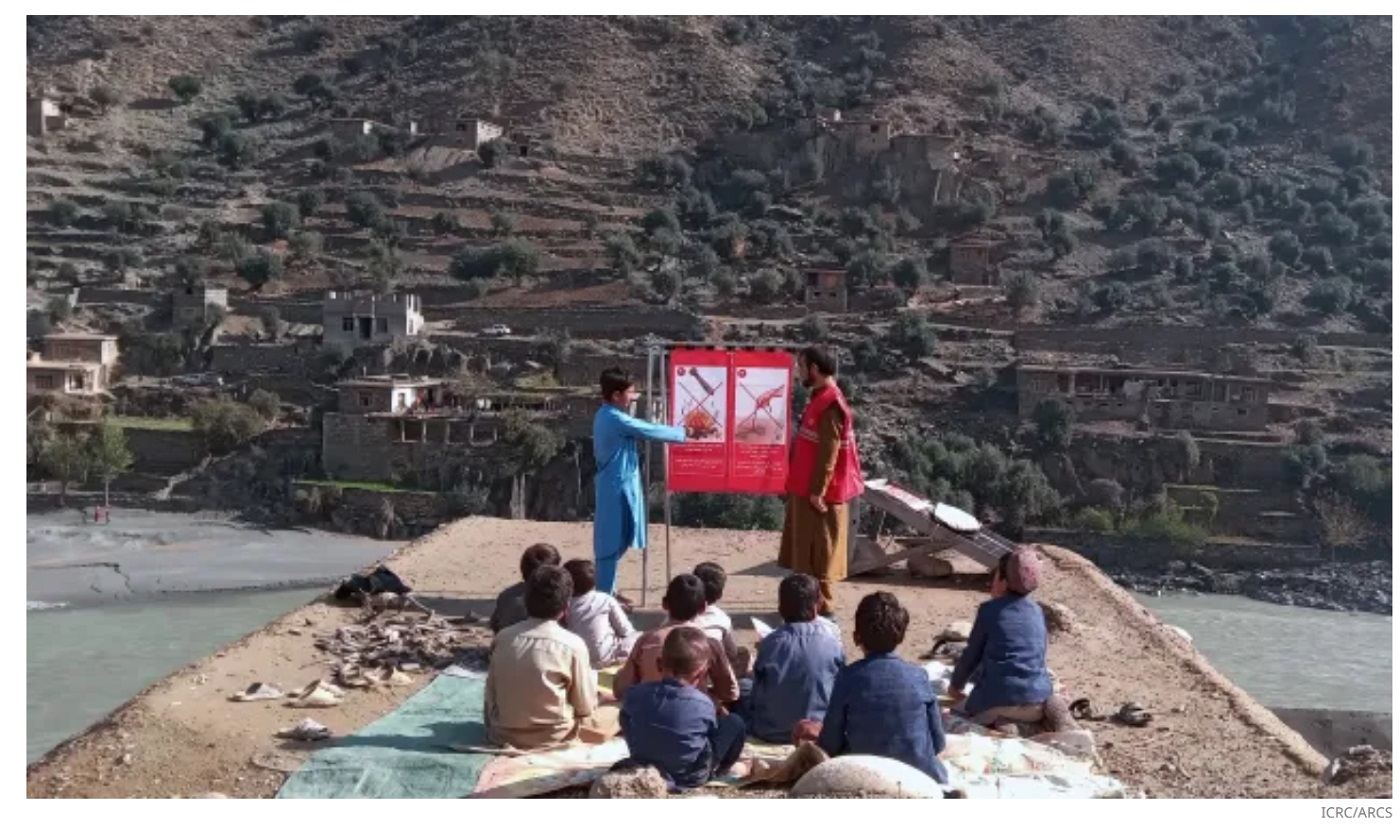
With ICRC’s support, an ARCS volunteer conducts a Risk Awareness Safe Behaviour (RASB) session for children in a weapon contaminated area in the Narai district of Kunar province.
Afghanistan remains one of the country’s most vulnerable to explosive hazards, which pose great risks to communities. In 2024, as per the ICRC’s records, 455 civilians (of which 359 were children) suffered fatalities or injuries in 234 incidents linked to explosive hazards. Together with the ARCS, our teams conducted several risk awareness and safer behaviour sessions across the country, reaching out to more than 240,000 people, more than half of whom were children, in weapon contaminated areas.
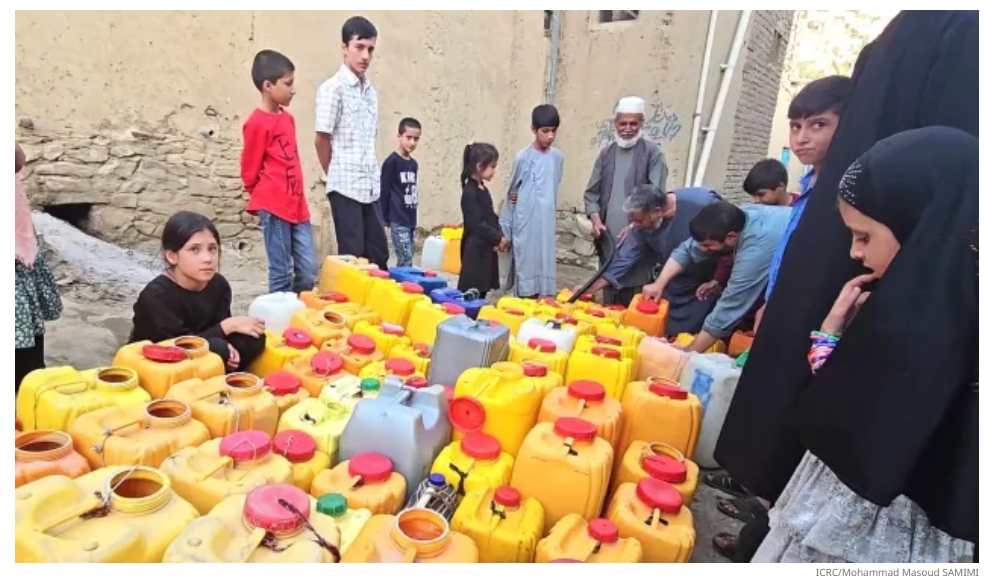
Many in Afghanistan, mainly women and children, are forced to travel far from their homes to fetch water.
Access to safe drinking water has long been a challenge for communities in Afghanistan, notably in densely populated areas. “The water supply is unreliable, and the underground water level has significantly declined. Sometimes, water is only available late at night, around 10 or 11pm, with no set schedule for it,” said Mohammad Noman, a Kabul resident, highlighting the inefficiencies of the existing water supply system. This unpredictability underscores the urgent need for improving infrastructure and for a more sustainable water management system to better serve the requirements of the communitie.
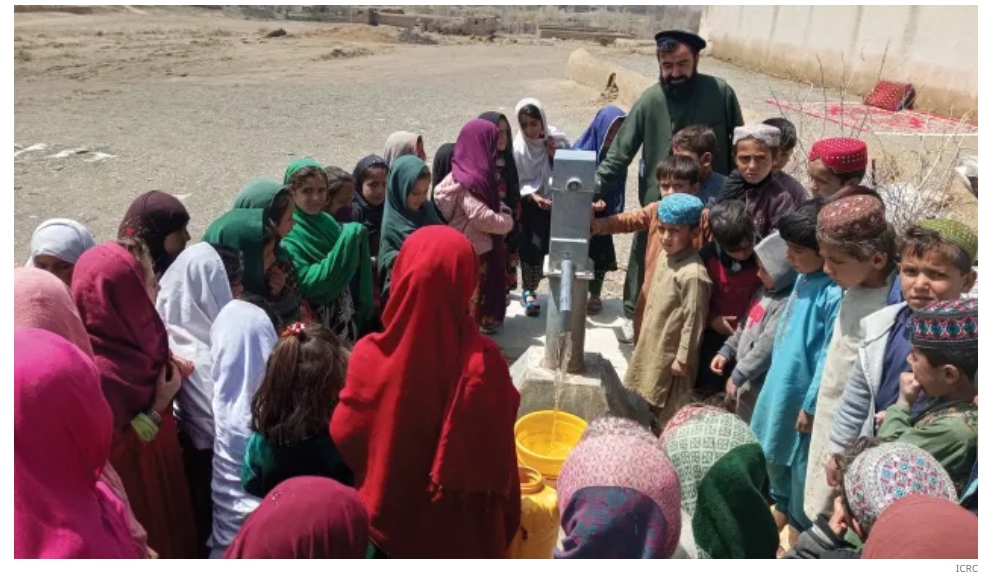
Children gather to collect drinking water in Khohseen village, Sayed Karam district, Paktia province.

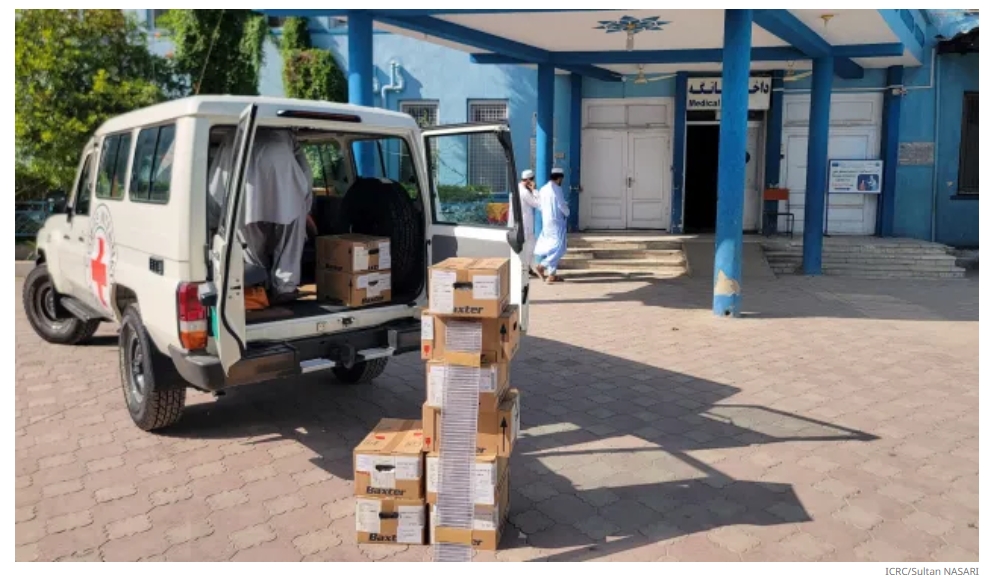
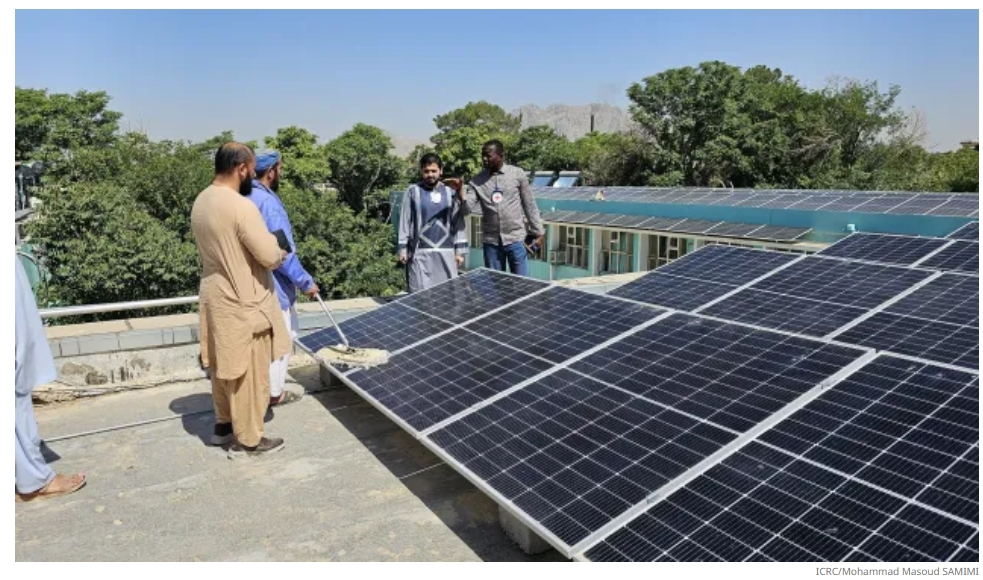
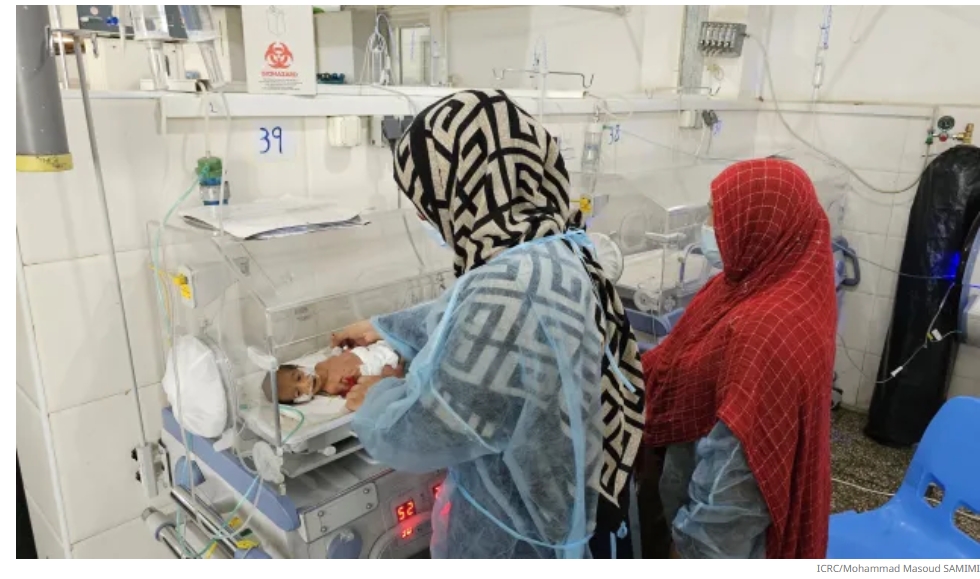
A stable electricity supply has ensured a significant improvement in providing reliable health-care services.
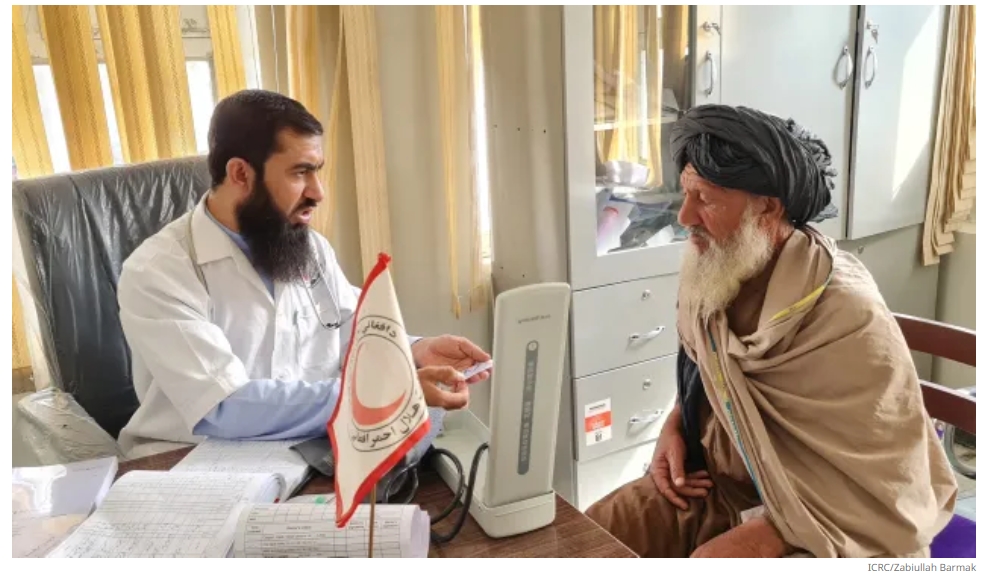
Basic health-care centres are a vital network of accessible, free and well-resourced health facilities for communities across Afghanistan.
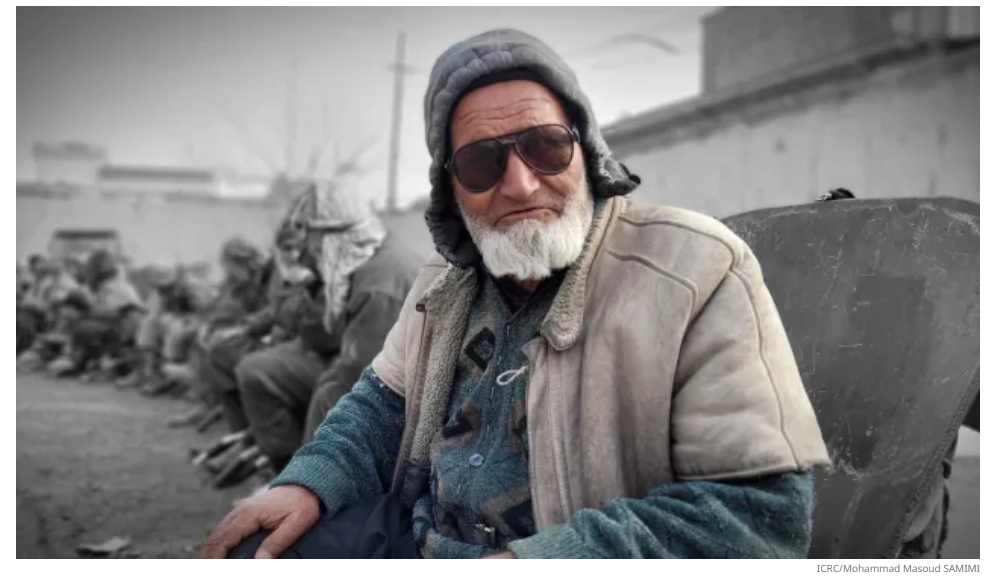
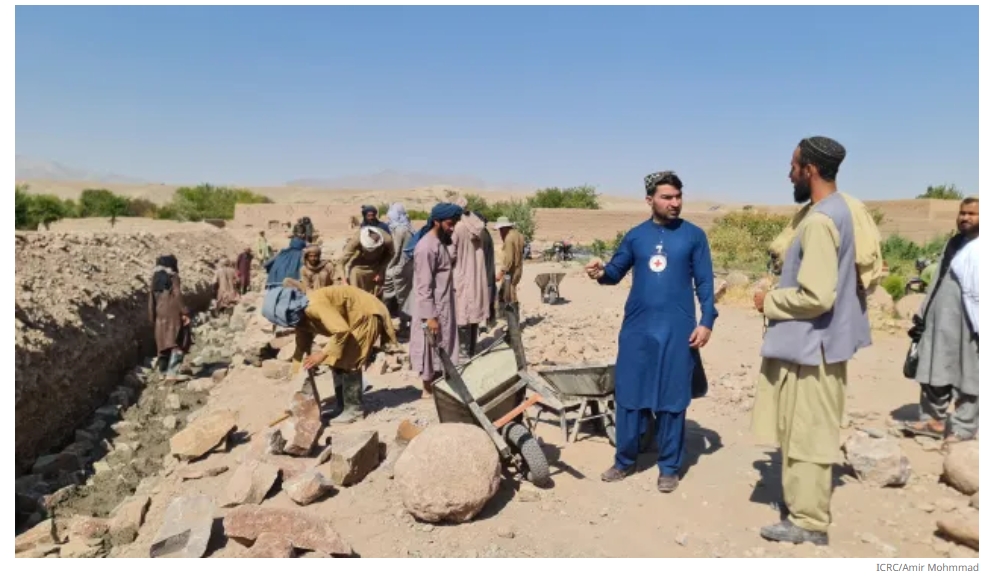
The rebuilding project improved the supply of drinking water and the irrigation infrastructure for over 5,200 households. Through our cash-for-work programme, the project also provided short-term employment and income to more than 350 people from the local community.
Across the country, in 2024, the ICRC implemented 15 programmes in 11 provinces resulting in short-term employment and financial compensation for over 24,000 individuals.
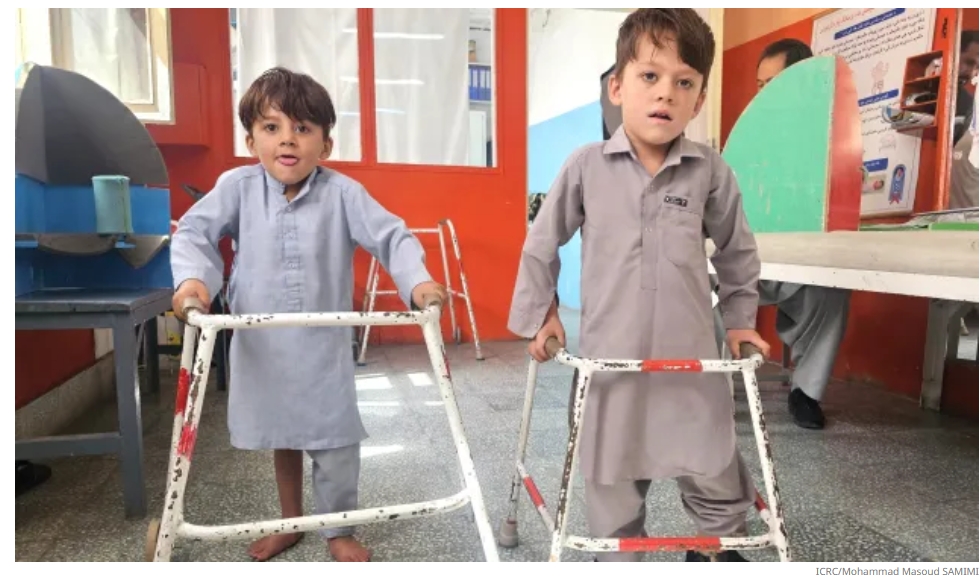
Little Mohabbatullah and Yusuf, both battling cerebral palsy, continue receiving care at the ICRC’s physical rehabilitation centre in Kabul.
Witnessing his sons’ progress after receiving treatment at the ICRC-supported physical rehabilitation facility, their father, Matiuallah, feels more hopeful now. “I was terrified for my boys. Watching them crawl painfully on their chests shattered me. But now, seeing the strength slowly returning to their legs, I witness small but powerful steps towards healing. This is exactly what I had prayed for before coming here.”.
The ICRC operates its largest physical rehabilitation programme in Afghanistan, with seven centres across the country providing vital physical and social rehabilitation support to over 200,000 people with disabilities each year.
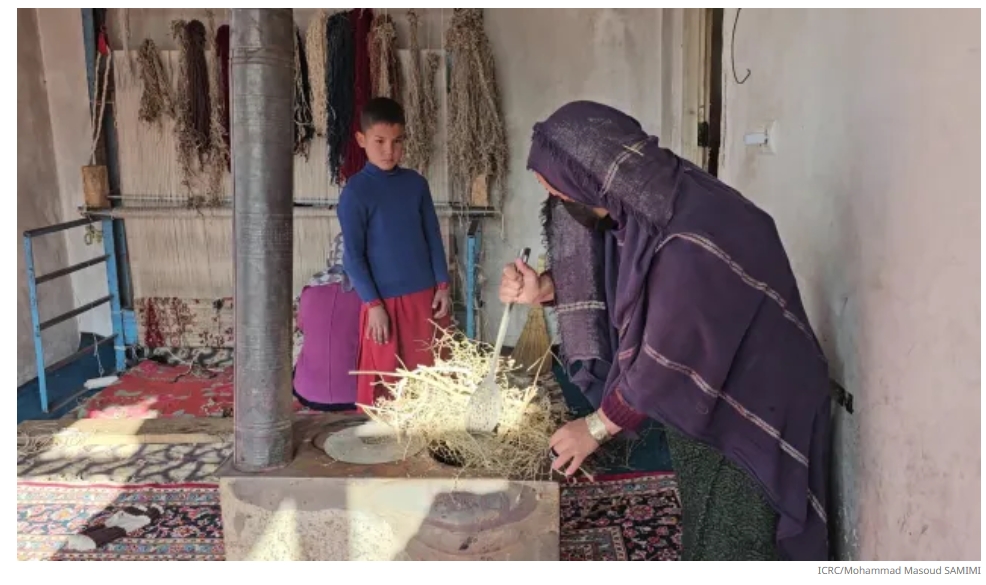
During winter, many Afghan families face an impossible choice: heat or eat.
“After losing my husband in Afghanistan’s past conflicts, I struggle to make ends meet, as the sole breadwinner, living in a rented house with my five children. With winter approaching, we can’t afford heating materials and burn trash to stay warm. Battling severe hypertension, I weave carpets with my children, earning AFN 5,000 every three months – a meagre income for survival,” said Seqida, a Kabul resident.
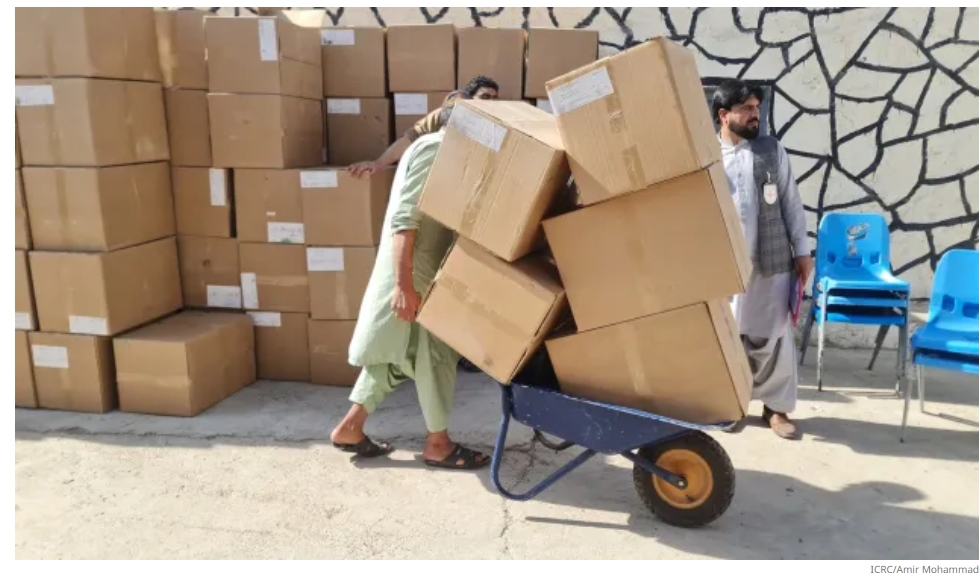
Delivering hygiene and winter materials to help detainees at the Sarpoza provincial prison in Kandahar.
For the past 40 years, the ICRC has been visiting prison facilities in Afghanistan in compliance with our humanitarian mandate. As part of our detention-related activities, we have been maintaining a dialogue with the authorities to promote humane living conditions for detainees and the dignified treatment of people deprived of their liberty. Our teams work to improve detainees’ living conditions by providing winter, hygiene, educational and recreational items. We also provide technical support and expertise to help prison staff improve prison management systems and uphold detainees’ rights, including access to essential services. Our efforts include helping detainees restore and maintain contact with their loved ones. Moreover, we promote the respect for basic judicial guarantees.
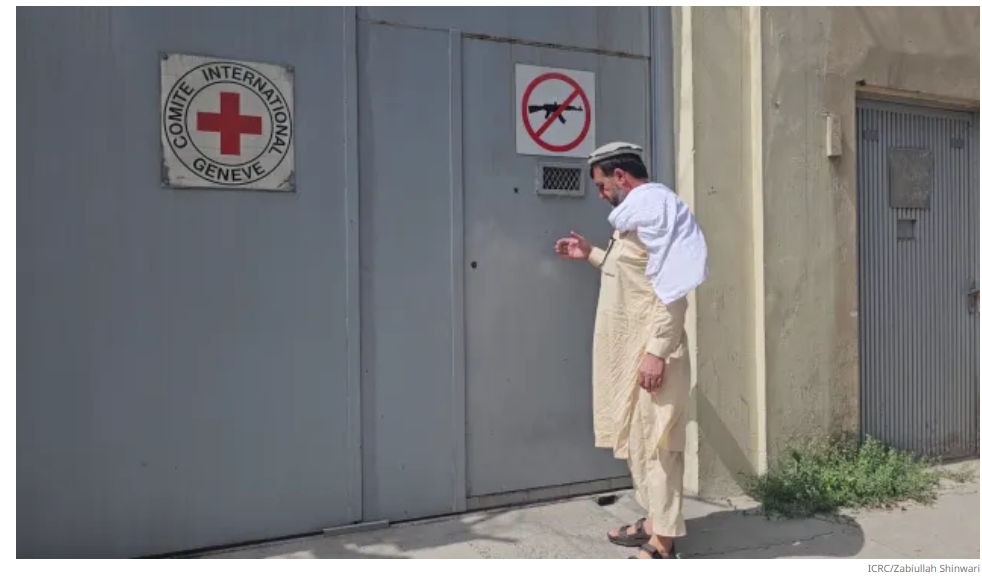
The ICRC helped Lal Zameer Shinwari, from Nangarhar province, find his son after three years of relentless efforts to search for him.
“People kept reassuring us, saying, ‘Your son is alive and healthy, perhaps you are overthinking. But I couldn’t believe it. I was convinced that he had died because I hadn’t been able to contact my 15-year-old son for a long time. It was hard to accept when you cannot communicate with someone for that much time, it feels like they are gone forever. Then, after three long years, the ICRC told me they had found him, safe and well. When I finally spoke to him, it was as if he had been reborn. My whole family is incredibly grateful for everything the ICRC did to find my son.”


Comments